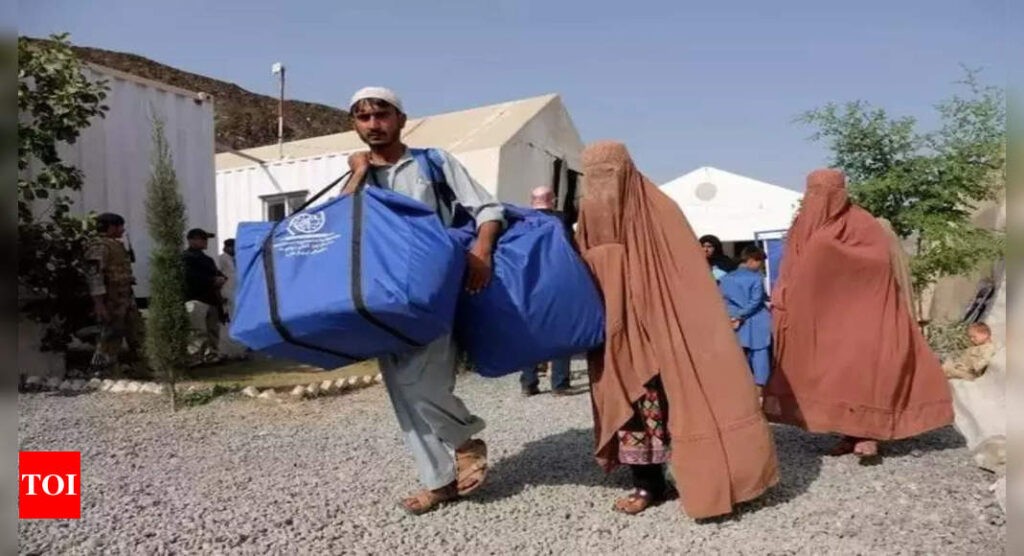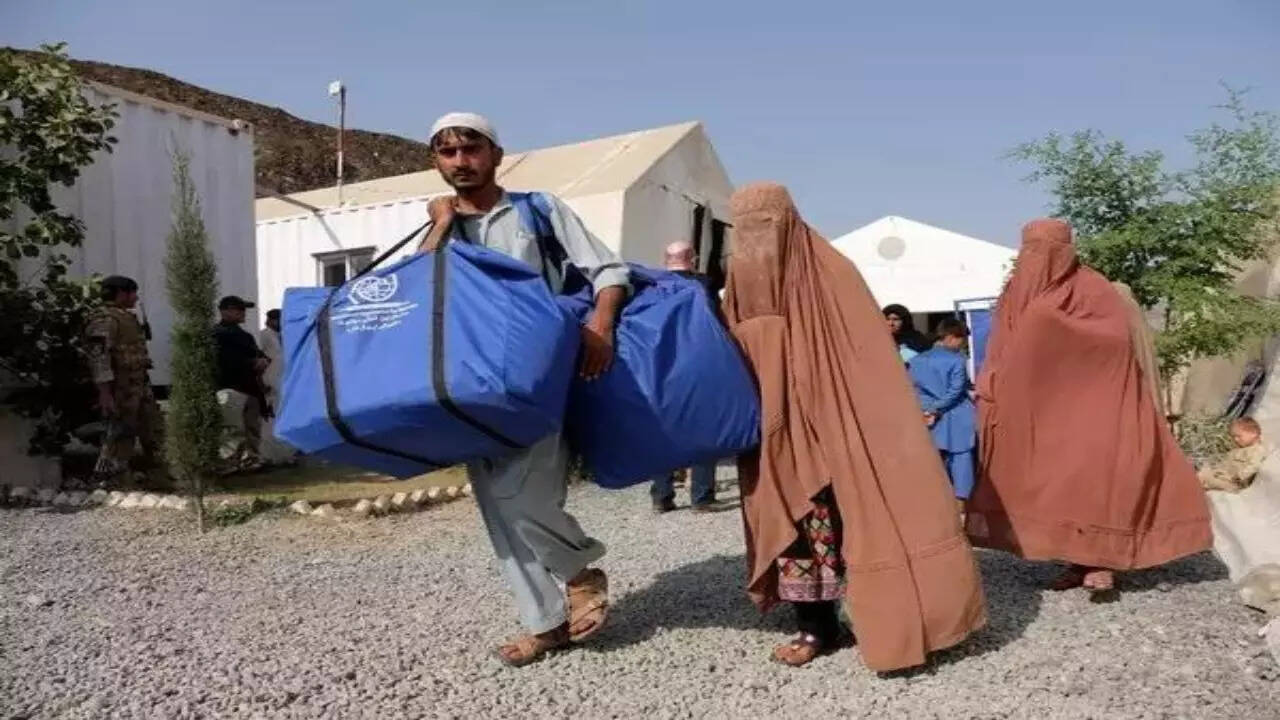[ad_1]
At the 260th Corps Commanders’ Conference held at General Headquarters in Rawalpindi, top brass of the Pakistan army resolved to fully support the federal government’s decision to repatriate and deport all illegal foreigners from November 1 onwards, the military said in a statement.
Presiding over the meeting, army chief General Asim Munir directed all authorities concerned to support and facilitate the smooth, respectable and safe repatriation and deportation of all illegal foreigners.
The move, which will impact approximately 1.7 million undocumented Afghan refugees in Pakistan, is expected to further strain Pakistan’s ties with the Taliban-ruled Afghanistan.
The order comes as Pakistan grapples with a sharp rise in terror attacks carried out by militants operating from Afghanistan soil, a charge Kabul routinely denies.
Pakistan’s caretaker government has set October 31 as the deadline for thousands of undocumented immigrants to leave the country or risk imprisonment, deportation and forcible expulsion from November 1.
The decision has drawn widespread criticism, with organisations such as the United Nations High Commissioner for Refugees (UNHCR) and Amnesty International calling on the government to rethink its plans.
The Taliban-led government in Afghanistan has also expressed its reservations over the move, calling it “unacceptable”.
Nevertheless, Pakistan is dead set on its decision as it wants to tackle an unprecedented rise in terror attacks from Tehreek-e-Taliban Pakistan, a local offshoot of the Taliban.
Pakistani Taliban have hideouts and bases in Afghanistan but regularly cross into Pakistan to stage attacks on Pakistani forces.
The outlawed group often claim attacks on Pakistani security forces.
[ad_2]
Source link











More Stories
We can’t wait to face India in the final: Pat Cummins | Cricket News
Railways plans 3,000 additional trains in next 4-5 years to minimise number of waitlisted tickets | India News
Faridabad: Man dies after ‘falling from hotel room window’ while partying with friends